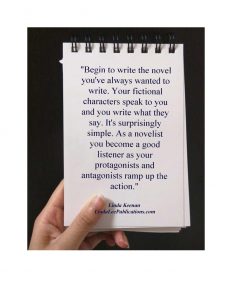The Term "Robot" is Born
Have you heard of Artificial People . . . not insincere people. Artificial People are what Czech playwright Karel Capek called robots. In 1921, he released a science fiction play called “Rossum’s Universal Robots” and the term robot was born. Now we use chatbots—that’s chatting with a robot.
Thirty years after the term robot was born, in 1952, Arthur Samuel, a computer scientist, developed the first computer game. Anyone know what game that was? Checkers.
Three years after that, a math genius with a PhD from Princeton spoke about A.I. at a Dartmouth workshop—that’s purportedly when the phrase Artificial Intelligence came into being.
Jeopardy Champ vs. Watson
According to IBM, Artificial Intelligence is technology that enables computers and machines to simulate human intelligence. In 2011 supercomputer Watson (named for IBM’s founder, Thomas Watson) was pitted against Jeopardy champion, Ken Jennings who’d previously won 74 consecutive games. Jennings studied A.I. and how it works—he was confident that he, a genius, would beat Watson, although it might not be a cake walk. Watson beat Jennings in the third of three rounds in the nonfiction category. Computer experts learned a great deal from the match. If you want more information, read “Final Jeopardy: Man vs. Machine” by Stephen Baker.
Comparison of Two Chatbots
A.I. Chatbots, like ChatGPT are in everyday use. You might ask what GPT stands for. It’s Generative Pre-Trained Transformer, a language model tool to decipher and generate human-like text. IBM calls theirs “Watsonx Assistant.” Microsoft’s version is “Copilot.” You can ask it anything using LLM (large language model)—it understands and answers in human language. Google’s name is “Bard” now under the umbrella of “Gemini” and there’s even a chatbot called “You.com.”
I decided to ask You.com and ChatGPT the same question to compare results. My question was “What is the best way to housebreak an eight week old male Maltese puppy?” (The more specifically you phrase your question, the better your answer will be.)
Between You.com and ChatGPT, they offered essentially the same helpful advice. I thought ChatGPT’s answer was clearer, because two important points were in a separate category: learn the signs to go outside (sniffing or circling) and take regular potty breaks. You.com had something that ChatGPT did not—at the end of the advice, it said, “Good Luck with housebreaking!”
New Convert
I’m not presenting a course in Artificial Intelligence, I’m a neophyte—a New Convert. That’s the perfect way to describe my attitude toward A.I. because initially, I said, “Oh, no! Not me!”
Practical Uses of A.I.
I’m here to tell you what changed my mind. A YouTube video: “How to Use ChatGPT to Learn Any Skill Quickly.” It was presented by Charlie Chang, a thirty-something entrepreneur and self-made millionaire. The title caught my attention with three phrases: How to, Learn any Skill and Quickly. I thought it might be worth fifteen minutes of my time, and it was. Chang talked very fast and I kept pausing the video so I could take notes.
Chang says skill building is one of the most important things to do, and asking the right questions is just as important. There are two parts to learning a skill—the learning part, and the practical application in the real world part.
The Learning Part
Here are five ways you can use ChatGPT for the learning part:
- As a Mentor. Here the example given was: “ChatGPT, you are an expert at copywriting and I want you to be my mentor.” When I asked ChatGPT that question, the answer came back, in part, with “I can give you feedback on your writing” and “Ask me any question you like about copywriting.”
- As your Partner to Keep Yourself Accountable. For instance, “I want to learn copywriting within two weeks. Can you design me a study schedule and what are the things I should learn if I have one hour a day, five days a week?”
- To Summarize for you—if you want to discover key points of an article or even a book that’s on the internet. Here’s the example Chang gave: “Give me an outline of the most important concepts in the book Think and Grow Rich.” Then you can ask for more information on a certain concept. I read Chat’s outline of Think and Grow Rich, then chose a part that I wanted more information about. My question was: “Can you tell me more about how to cultivate a positive mental attitude?” When I asked ChatGPT that question, there were 8 suggestions, ending with …by practicing these strategies, you can cultivate a more positive mental attitude and experience greater resilience, happiness and fulfillment. I’ll note that I kept the ChatGPT question open so I could ask more about that question. If you’re a visual learner, you can copy the answers into a document for future.
- To be your Study Partner. ChatGPT can test you when you’re learning a new skill, such as learning French. You can ask for common phrases you should know. Chat will ask YOU questions, you give the answers and it will tell you if your answer is right or wrong, just as a study partner would do.
To Get Resources for How YOU Learn Best. Different people learn differently. There’s visual, auditory, verbal, kinesthetic, experiential, social, emotional and musical-rhythmic learning. You can give ChatGPT specific prompts on how YOU learn best. In other words, you can say: “I’m a visual learner, please give me five resources to help me learn X.” OR “I’m an auditory learner, please give me five resources to help me learn X.”
The Practical Application Part
Now we get to the second part of how to learn anything quickly—the real world practical application part, learning copywriting as an example.
- Ask ChatGPT What Exercises or Projects you can work on to help build your skill as a copywriter. Keep in mind that within the learning part, you’ve already told Chat how much time you had to learn copywriting, and how quickly you wanted to learn.
- Here’s an interesting question to ask ChatGPT: What Ways Will I Fail in the Process of Learning to be a Copywriter? This sounds counterintuitive but it’s like furthering the mentoring process. What mistakes do beginners make? It’s been done before, you can learn from the mistakes of others and save yourself the time and trouble.
The job of a copywriter is to create compelling marketing materials to promote products or services. Getting back to quickly learning to be a copywriter, I asked Chat to recommend a contemporary book on learning to become a professional copywriter. It came back with Hey, Whipple, Squeeze This: The Classic Guide to Creating Great Ads* by Luke Sullivan.
I then asked Chat to summarize the key points of the book, in outline form. There were eleven sections in the outline: Introduction, Understanding your Audience, Brainstorming, Writing Compelling Copy, Visual communication, Campaign Development, Branding and Positioning, Navigating the Ad Industry, Ethics in Advertising, Examples and Resources.
As in the example of summarizing Think and Grow Rich, I chose one concept in the outline to ask Chat for more information about: Understanding your Audience. Chat’s answer was: “Certainly! Here’s a more detailed breakdown of the section on Understanding Your Audience in the outline of Hey, Whipple, Squeeze This: The Classic Guide to Creating Great Ads*. And voila, I’d learned what I set out to learn about copyrighting very quickly.
What Skill Would You Like to Learn Quickly?
I look for the bonus in any situation. The bonus I found was that the book* by Luke Sullivan might be helpful as we create marketing for our own writing.
Now that you’ve heard some practical ways that A.I. can be used, what skill would you like to learn quickly? Maybe, “How can I successfully market my book and spend no more than 30 minutes a day, 6 days a week?” As for me, I might create a job description for a virtual assistant and have A.I. complete the tasks just as a human assistant would, free of charge.
Start Small
There’s no need to fully embrace A.I. if you’re uncertain. Start small. You can experiment with the ways outlined in this article to learn any skill quickly. You’ll discover how to pose questions that render helpful answers, much like search engines you’re familiar with such as Google and Bing.
Keep Personal Information Safe
Exercise caution when using artificial intelligence. Research how to keep your personal information safe. Stay informed about common security threats and never share passwords or other information that could compromise your identity. Stick with reputable A.I. platforms.
This article is not an endorsement of using artificial intelligence in general, or of any A.I. service specifically. If you use A.I. it’s up to you to decide which platform to choose and how to use it.
#artificialintelligence, #chatbot, #watson, #learning, #practialskill, #howtouseai, #robot




